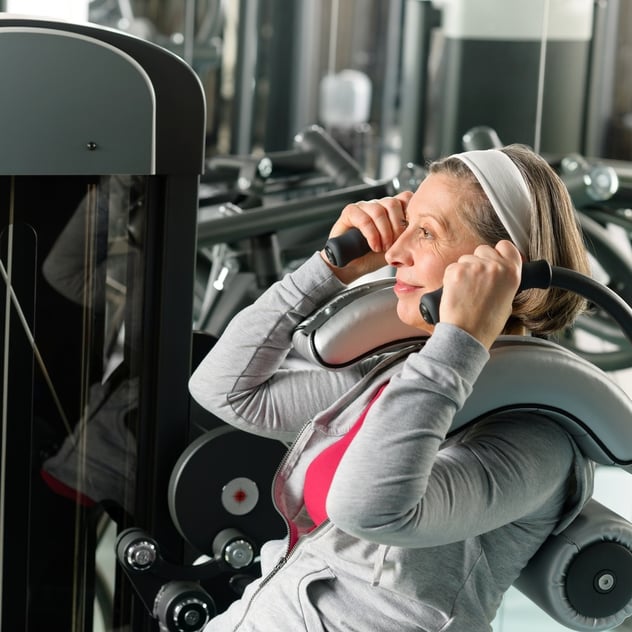 Especially during Breast Cancer Awareness Month, we want you to have all the information you need to protect your health with cancer prevention and early detection strategies. Here are our top four tips for minimizing your risk and catching potential breast cancers when they’re most treatable.
Especially during Breast Cancer Awareness Month, we want you to have all the information you need to protect your health with cancer prevention and early detection strategies. Here are our top four tips for minimizing your risk and catching potential breast cancers when they’re most treatable.
1. Embrace healthy habits.
Nutrition, physical activity, and weight have all been linked to breast cancer risk. The American Cancer Society recommends eating at least five servings of fruits and vegetables each day, not only because this supports overall health (which reduces cancer risk), but also because certain plant-based chemicals (also known as “phytochemicals”) such as antioxidants have been found to be useful in cancer prevention. Studies have found both that weight gain can increase a woman’s risk for breast cancer and that weight loss can reduce it, and even apart from its effect on weight, regular exercise has been shown lower breast cancer risk. As with many cancers, tobacco use and excessive alcohol consumption increase the risk of developing breast cancer.
2. Learn to recognize breast cancer symptoms.
An important part of maintaining good health is being aware of your body and when something is different. Even in the age of advanced breast cancer screening techniques, many women discover breast cancers on their own. Knowing your body and being conscious of how it changes enables you to recognize the signs of breast cancer and protect yourself between mammograms. Consult your doctor if you notice any of the following:
- New, localized, sustained pain that does not seem related to your monthly cycle
- Change in breast size or shape
- Swelling, redness, or warmth in the breast
- Change in skin appearance on the breast, such as dimpling, scaling, or an “orange peel” texture
- A lump, knot, or thickened tissue in the breast or underarm
For a more complete description of breast cancer warning signs, see our previous article.
3. Get regular breast cancer screening.
One in eight women will get breast cancer in her lifetime. According to the American Cancer society, breast cancers found as a result of screening exams are more likely to be smaller and confined to the breast. By getting regular mammograms, you increase the chances that any developing cancer will be found in its early stages, when it’s most treatable.
4. Understand your options.
Not all breast imaging is alike. With the increasing precision of mammogram technology, modern techniques can find even more cancers while calling fewer women back in for follow-up testing than ever before. Talk to your doctor about your breast cancer risk, breast density, and other factors that may affect what type of breast cancer screening is most appropriate for you.
At Iowa Radiology, we strive to provide our patients with the information and resources they need to make the best possible choices for their health care. If you have questions about mammography, click below to access our free eBook. It’s full of information about risks and benefits, what to expect and how to prepare, 3-D mammography, and more. If you’re ready to schedule, click here to request your mammography appointment.
The information contained in the Iowa Radiology website is presented as public service information only. It is not intended to be nor is it a substitute for professional medical advice.You should always seek the advice of your physician or other qualified healthcare provider if you think you may have a medical problem before starting any new treatment, or if you have any questions regarding your medical condition.


